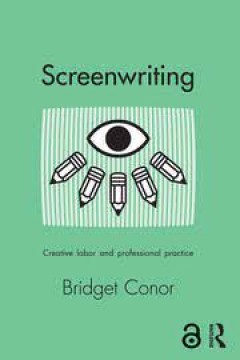Filter by

Sufism in the West
With the increasing Muslim diaspora in post-modern Western societies, Sufism – intellectually as well as sociologically – may eventually become Islam itself due to its versatile potential. Although Sufism has always provoked considerable interest in the West, no volume has so far been written which discusses this aspect of Islam in terms of how it is practised in Western societies. Bring…
- Edition
- -
- ISBN/ISSN
- 9780203087206
- Collation
- -
- Series Title
- -
- Call Number
- -

Morality and Nationalism
This book takes a unique approach to explore the moral foundations of nationalism. Drawing on nationalist writings and examining almost 200 years of nationalism in Ireland and Quebec, the author develops a theory of nationalism based on its role in representation. The study of nationalism has tended towards the construction of dichotomies – arguing, for example, that there are political…
- Edition
- 1st Edition
- ISBN/ISSN
- 9780203086179
- Collation
- -
- Series Title
- -
- Call Number
- -

Screenwriting: Creative Labor and Professional Practice
Screenwriting: Creative Labor and Professional Practice analyzes the histories, practices, identities and subjects which form and shape the daily working lives of screenwriters. Author Bridget Conor considers the ways in which contemporary screenwriters navigate and make sense of the labor markets in which they are immersed. Chapters explore areas including: Screenwriting histories and…
- Edition
- 1st Edition
- ISBN/ISSN
- 9780203080771
- Collation
- -
- Series Title
- -
- Call Number
- -

Media and New Religions in Japan
The Open Access version of this book, available at www.taylorfrancis.com/books/9781135117849, has been made available under a Creative Commons Attribution-Non Commercial-No Derivative 4.0 license. Japanese "new religions" (shinshūkyō) have used various media forms for training, communicating with members, presenting their messages, reinforcing or protecting the image of the leader, and, pote…
- Edition
- 1st Edition
- ISBN/ISSN
- 9780203075036
- Collation
- -
- Series Title
- -
- Call Number
- -

The Collapse of Communist Power in Poland: Strategic Misperceptions and Unant…
Based on extensive original research, including interviews with key participants, this book investigates the sudden and unforeseen collapse of communist power in Poland in 1989. It sets out the sequence of events, and examines the strategies of the various political groupings prior to the partially free election of June 1989. This volume argues that the specific negotiating strategies adopte…
- Edition
- -
- ISBN/ISSN
- 9780203027769
- Collation
- -
- Series Title
- -
- Call Number
- -

Embracing New Perspectives in History, Social Sciences, and Education
This book provides a collection of articles resulting from the International Conference on History, Social Sciences, and Education (ICHSE), which was held on 11 September 2021. The Department of History of Malang State University choose "Embracing New Perspectives in History, Social Sciences, and Education" as the main topic, and elaborates on five subthemes: 1) new trends in historical researc…
- Edition
- -
- ISBN/ISSN
- 9781003295273
- Collation
- -
- Series Title
- -
- Call Number
- -

The Routledge Companion to Global Renaissance Art
This companion examines the global Renaissance through object-based case studies of artistic production from Africa, Asia, the Americas, and Europe in the early modern period. The international group of contributors take an art historical approach characterized by close analysis of form and meaning as well as function, and a focus on questions of crosscultural dialogue and adaptation. Seekin…
- Edition
- -
- ISBN/ISSN
- 9781003294986
- Collation
- -
- Series Title
- -
- Call Number
- -

Film and Place in an Intercultural Perspective India-Europe Film Connections
The book offers an interdisciplinary overview of the film and place relationship from an intercultural perspective. It explores the complex domain of place and space in cinema and the film industry's role in establishing cultural connections and economic cooperation between India and Europe. With contributions from leading international scholars, various case studies scrutinise European and …
- Edition
- -
- ISBN/ISSN
- 9781003293347
- Collation
- -
- Series Title
- -
- Call Number
- -

The Philosophy of Desire in the Buddhist Pali Canon
David Webster explores the notion of desire as found in the Buddhist Pali Canon. Beginning by addressing the idea of a 'paradox of desire', whereby we must desire to end desire, the varieties of desire that are articulated in the Pali texts are examined. A range of views of desire, as found in Western thought, are presented as well as Hindu and Jain approaches. An exploration of the concept of …
- Edition
- 1st Edition
- ISBN/ISSN
- 9780203010570
- Collation
- -
- Series Title
- -
- Call Number
- -

Museums for Peace
Museums for Peace: In Search of History, Memory and Change highlights the inspiring as well as conflicting representations and purposes of diverse museums for peace around the world. Coming from various cultural and professional backgrounds, the authors explore “what are museums for peace and what do they mean?” Some chapters introduce alternative histories of peace, conflict, and memori…
- Edition
- -
- ISBN/ISSN
- 9781003290896
- Collation
- -
- Series Title
- -
- Call Number
- -
 Computer Science, Information & General Works
Computer Science, Information & General Works  Philosophy & Psychology
Philosophy & Psychology  Religion
Religion  Social Sciences
Social Sciences  Language
Language  Pure Science
Pure Science  Applied Sciences
Applied Sciences  Art & Recreation
Art & Recreation  Literature
Literature  History & Geography
History & Geography